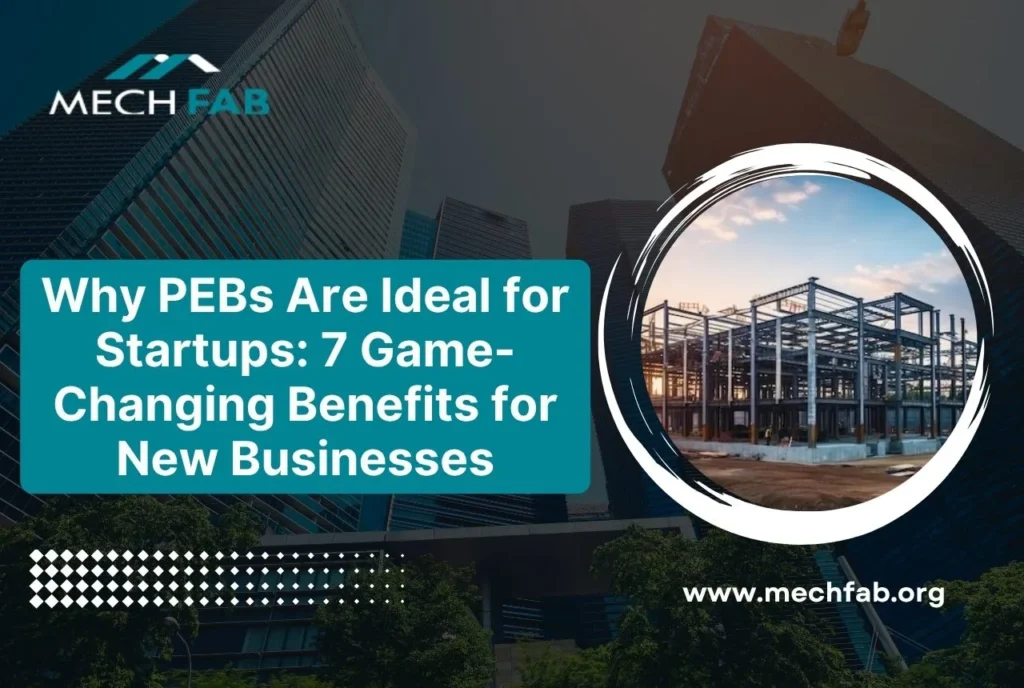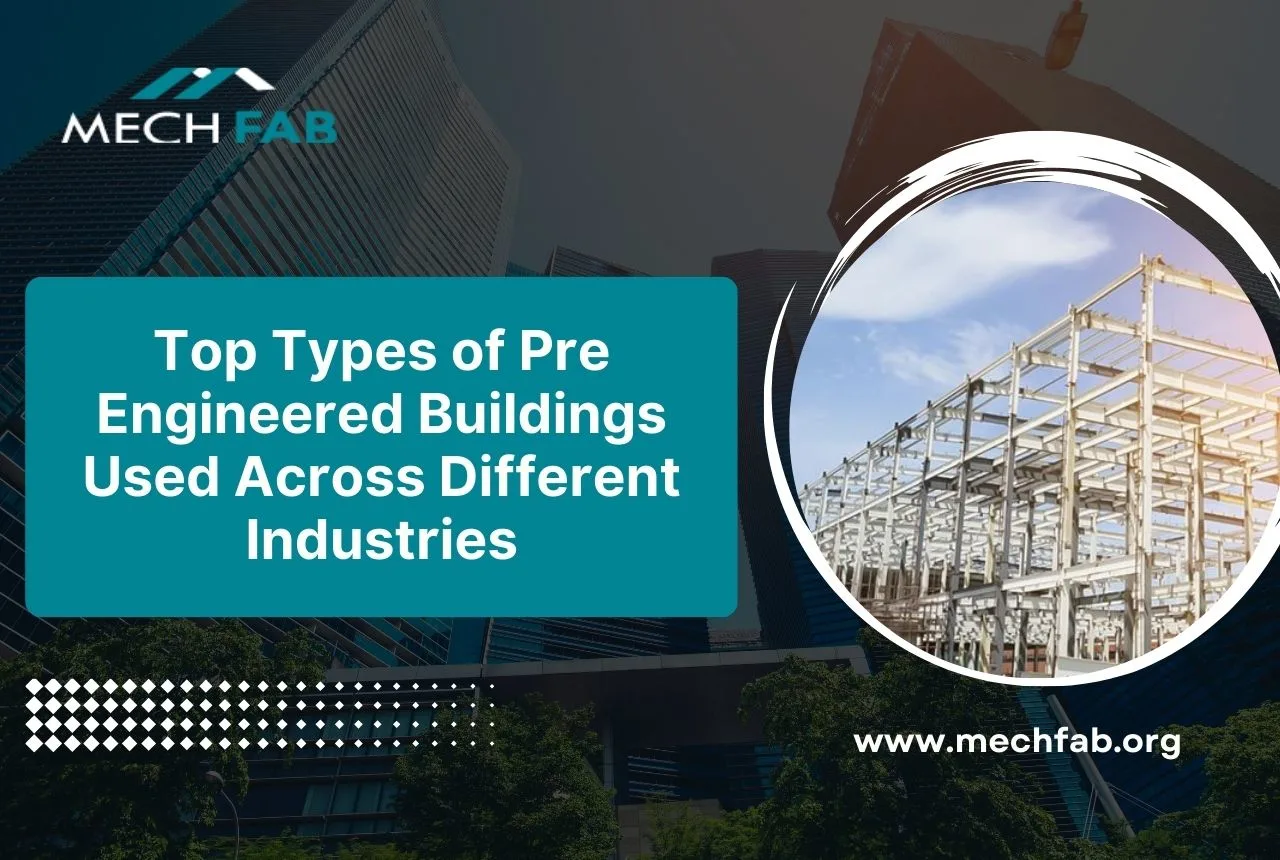Startups often explore why PEBs are ideal for startups when facing significant infrastructure challenges—from limited budgets and tight timelines to the need for flexible, scalable workspaces. In this dynamic environment, traditional brick-and-mortar construction is often too slow, expensive, and rigid to meet evolving demands.
Enter Pre-Engineered Buildings (PEBs)—a modern construction solution that’s rapidly gaining popularity among new businesses. PEBs are steel structures manufactured in a factory and assembled on-site, offering a perfect blend of speed, affordability, and adaptability.
This blog explores why PEBs are ideal for startups and highlights the top 7 reasons why forward-thinking entrepreneurs are increasingly choosing them in 2025.
Why PEBs Are Ideal for Startups
Why PEBs are ideal for startups becomes clear when we compare their advantages against the unique needs of a new business. Unlike conventional construction, PEBs are pre-designed, factory-fabricated structures made from steel components, which are transported and assembled at the site. This method significantly cuts down on both time and cost.
Startups thrive on agility—they need quick infrastructure setup, budget-friendly options, and flexibility for future changes. PEBs directly meet these demands with their rapid deployment, customizable design, and easy scalability.
In 2025, PEBs are being adopted across industries such as manufacturing, logistics, tech, and retail. From small offices to full-scale warehouses, startups are finding that PEBs offer the speed and flexibility required to stay competitive and scale fast—making them the smarter choice over traditional alternatives.
Top 7 Reasons Entrepreneurs Choose PEBs
1. Speedy Construction Saves Time
One of the greatest advantages of PEBs—and a key reason why PEBs are ideal for startups—is their swift construction timeline. Since components are fabricated off-site and assembled modularly, projects can be completed in a fraction of the time compared to conventional methods.
For startups, time saved in construction means quicker launch, faster operations, and a shorter path to revenue. Whether setting up an office, warehouse, or manufacturing unit, PEBs help new businesses hit the ground running—underscoring why PEBs are ideal for startups aiming for speed and efficiency.
2. Cost-Effectiveness and Financial Predictability
PEBs offer a cost-efficient alternative for startups working within strict financial limits. Reduced on-site labor, minimized material wastage, and faster completion lower both capital and operational expenses.
Moreover, because most components are pre-planned and manufactured in controlled environments, startups benefit from better cost predictability and fewer budget overruns—critical for early-stage business survival and growth.
3. Customization and Design Flexibility
Startups often need facilities tailored to their niche—be it open-plan offices, temperature-controlled storage, or compact workshops. PEBs provide flexible design options that can be customized to suit specific industry requirements.
Whether it’s adjusting floor space, adding mezzanines, or planning future extensions, PEB structures make it easy to design a setup that fits today’s needs and tomorrow’s possibilities.
4. Scalability for Growing Businesses
Scalability is at the heart of startup success. As a business grows, infrastructure needs change—and PEBs are built to adapt. Their modular design enables businesses to expand facilities by adding new sections with minimal effort.
This means startups don’t have to invest in oversized spaces upfront. Instead, they can build incrementally, scaling up without disrupting existing operations.
5. Energy Efficiency and Sustainability
PEBs incorporate eco-conscious materials and features such as insulated panels, cool roofs, and efficient ventilation systems, which reduce energy consumption significantly.
For startups with sustainability goals—or simply looking to cut long-term utility costs—PEBs offer a greener, more efficient alternative. These structures also support sustainable certifications and align with the values of today’s environmentally conscious entrepreneurs.
6. Low Maintenance and Durability
Made from high-quality steel and weather-resistant components, PEBs are designed for durability and longevity. Their low-maintenance nature means startups can focus on business operations instead of constant repairs and upkeep.
This durability reduces long-term infrastructure costs, making PEBs an investment that pays off well into the future.
7. Minimal Disruption and Quick Setup in Any Location
Whether in an urban zone or a remote industrial area, PEBs can be set up quickly and with minimal disruption to the surroundings. This is especially helpful for startups exploring untapped markets or requiring infrastructure in less-developed areas.
PEBs also support relocation and repurposing, which is ideal for businesses that need temporary or mobile setups.
MECHFAB: Leading PEB Manufacturer in Guwahati and Assam
If you’re a startup in Northeast India looking to build with confidence, MECHFAB is a name you can trust. As a leading PEB manufacturer in Guwahati and Assam, MECHFAB offers end-to-end solutions—from design and fabrication to installation.
With years of experience and a portfolio spanning industrial sheds, warehouses, retail spaces, and institutional projects, MECHFAB understands what startups need: affordability, flexibility, and speed. Their expert team ensures each project is tailored to help businesses thrive from day one.
Conclusion: The Future of Startup Infrastructure with PEBs
As startups continue to disrupt industries, their need for dynamic, efficient infrastructure grows. PEBs offer the perfect solution—affordable, quick to deploy, customizable, and scalable.
In a business landscape where agility is everything, PEBs align perfectly with the entrepreneurial mindset. Why PEBs are ideal for startups is no longer a question—it’s a proven strategy. For any new venture looking to build smarter, faster, and greener, Pre-Engineered Buildings are the future of startup infrastructure.






